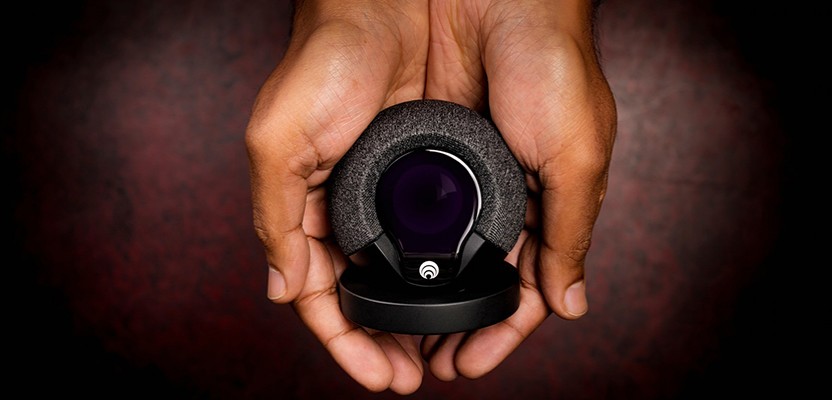The burglar alarm finally steps into the smartphone age
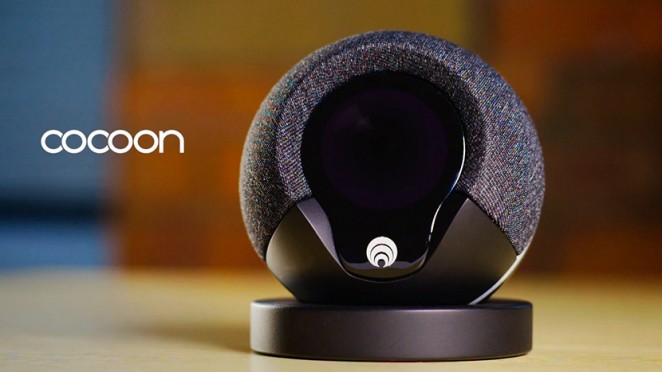
Dan Conlon, the founder of the tech firm that bears his name, have created a new home alarm overhauled for the internet age. Next year the Cocoon by Conlon will be launched for £299. A device slightly larger than a tennis ball, it uses a microphone to detect sounds outside of the hearing range of humans to alert in case of intruders in the home. Using smartphones to identify the various residents of the house or flat, the device learns their movements and eliminates them from the sound waves it detects, identifying unusual movements by unexpected, unwanted guests. At the heart of the Cocoon unit is a microphone that detects infrasound waves, which range from about 0.5Hz to 18Hz, and are more commonly associated with communication between elephants or the detection of a volcanic eruption from a distance. It's the range of sound which is just below what the human ear can hear.
The Cocoon home alarm system uses a microphone to detect sounds outside of the hearing range of humans to alert homeowners in case of intruders
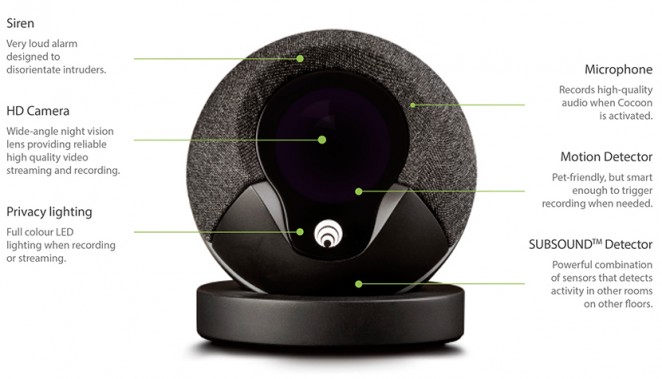
Through an app on the phones of a home's residents, the device understands their movements and then builds up a model of what happens when people are in the home. It knows, for example, when people are outside of the home as the phones will not be present. The alert of an intruder can be sent to the smartphone of the residents and a camera on the device, shows what is happening within its range. A subscription service is planned where a call centre will monitor the home if an alert goes off and will be able to contact the police. Initial tests in 15 homes have yet to catch a burglar red-handed, but crucially have also not missed any according to Conlon, who said of his creation: “We were surprised that alarm technology had not really moved on since the 80s. I assumed that there would be loads of easy smartphone connected alarm systems and there were not. We found that a lot of people who own an alarm don’t bother to set it either because they don’t believe that it will do anything useful or it will be a false alarm and no one will do anything.” So they saw a gap in the market they were uniquely qualified to fill. It's certainly an interesting (and surprisingly affordable) potential home safety investment, but we'll hold our fingers off the trigger until we see it in action.
The weekly Apple update

This week, Apple launched not just a 21.5-inch 4K iMac, but an updated 27-inch 5K iMac as well. The desktop computers feature more powerful processors and graphics, in addition to two Thunderbolt 2 ports, which will be the standard for all iMac models moving forward. They both also utilise OS X El Capitan, and a reworked Fusion Drive that aims to be more affordable by pairing different hard drive sizes with flash memory. The 4K iMac comes equipped with fifth-generation Intel Core processors, Intel Iris Pro Graphics and 8GB of RAM, whilst the 5K iMac uses sixth-generation Intel processors and an AMD Radeon R9 graphics cards. They are available now and start at £1,199 and £1,449 respectively. The tech giant is also launching the latest iterations of its Magic accessories, which includes the Magic Keyboard, Magic Mouse 2 and Magic Trackpad 2. The Magic Keyboard takes up 13% less space thanks to its new design, which also allows it to be more stable and precise, while the Magic Trackpad 2 features a larger surface than its predecessor and Force Touch. The Magic Keyboard and Magic Mouse 2 come with every new iMac, but the more expensive Magic Trackpad 2 needs to be bought separately.
This week Apple launched 4K and 5K iMacs and redesigned models of their Magic accessories

In related news, Apple has been fined $234 million this week after a court ruled it had infringed a university's microchip patent that was used in iPhones and iPads without permission. A jury reached the conclusion that the A7, A8 and A8X processors found in the iPhone 5s, 6 and 6 plus violated the patented technology created by the University of Wisconsin-Madison, which extends a device's battery life by two hours. Apple has denied any wrong-doing but is set to face further action from the university's non-profit arm Wisconsin Alumni Research Foundation (WARF) which is set to launch a second lawsuit over the company's newest chips. The pay-out is around $165 million (£107 million) less than the university's lawyers had initially demanded.
Hoverboards officially declared illegal in the UK
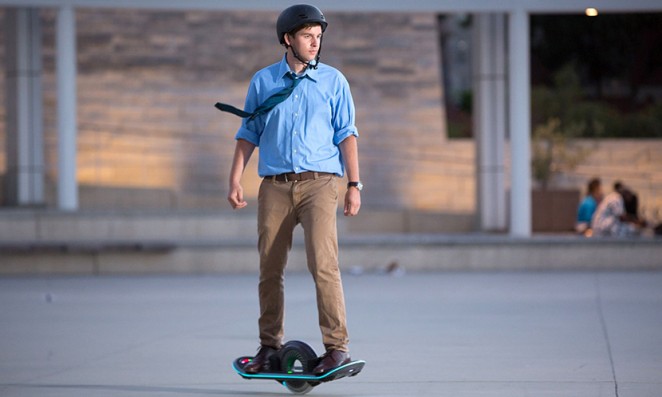
In a piece of frankly ridiculous news that arrives just in time for Back to the Future day on Wednesday, public hoverboard use has been banned in the UK. By hoverboard of course, they mean one of the self-balancing scooters that have been hitting the market recently. According to UK law, these scooters are identified as “Motor vehicles,” and are subject to proper traffic laws, so in order to ride them legally, one would have to have a license and registration for their use.
Public hoverboard use has officially been banned in the UK

It's practically impossible to make one of these street-legal, however, since they do not meet the requirements set up by UK law to make them a suitable fit for the road. Police ask that owners keep their use to private property with the owner's expressed permission. The scooters have been nicknamed hoverboards, despite having two wheels and being self-propelled and self-balancing (much like a Segway). Sadly, they don't quite match up to the infamous hoverboard Marty McFly rode in Back to the Future Part II, or the hoverboard project Lexus has been working on, but it's surely a step in the right direction.
Blocks brings modular design to the smartwatch
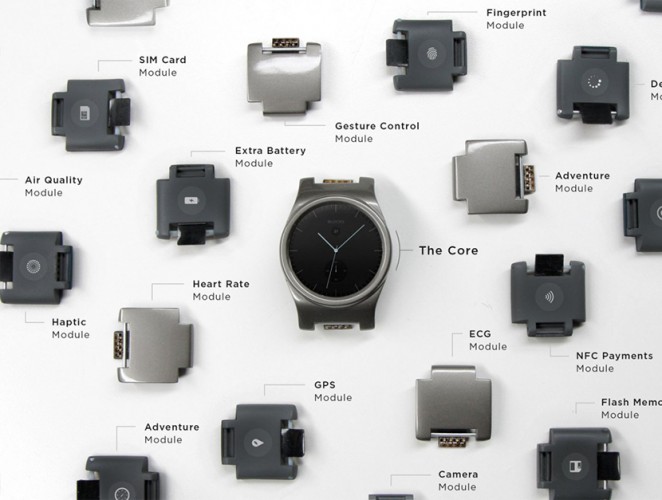
A London-based team has created a modular watch, which follows Google’s plans for the Ara modular smartphone and the Fairphone 2 Smartphone by Seymourpowell. The Blocks smartwatch is built around a core watch that can be upgraded by adding new functions to the strap, so users can, for example, add a battery module if the phone is running low on power or add a heart-rate monitor if they are into their fitness. The core watch, meanwhile, features functions such as phone notifications, activity tracking and voice control and comes with a full-colour touchscreen. Launching next year, the watch will function with Apple and Android phones, and the modules can be added or taken off without having to turn the watch off. The Blocks platform has also been opened up so that external developers can create their own modules to add to the smartwatch.
A London-based team has created a modular smartwatch
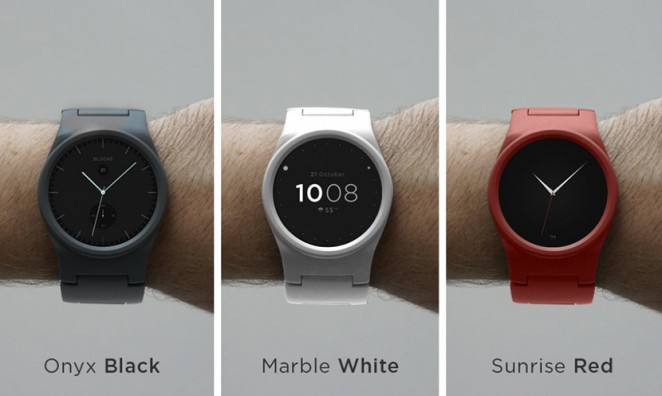
The device is made from high-quality, durable plastic and will be available initially in three colour options. The project has been under development for around two years and has launched on Kickstarter with an aim of bringing it to market next year, with the team aiming for a retail price of around £160, which is significantly more affordable than competing devices. It's unclear how the modules will be priced at this present moment in time, though additional modules are planned, including a fingerprint module, a camera module and a module to check air quality.
The upcoming Nintendo NX reportedly using industry-leading tech
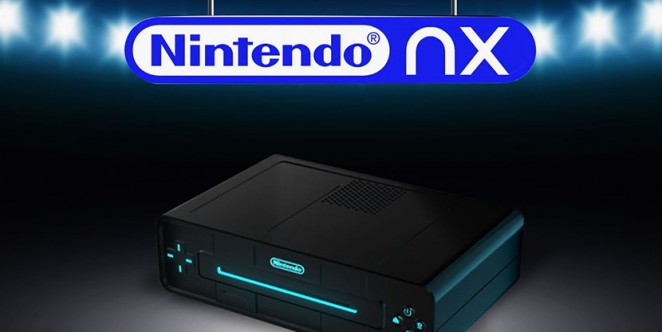
Nintendo is apparently already sending out dev kits for its upcoming NX console, revealing new details about the system. Sources are claiming that the console will come with industry-leading chips to ensure it can compete with PS4 and Xbox One, and coax back third-party developers, which have been notoriously absent on the Wii U. The console is thought to come packaged with a mobile unit that can be used either with the main console, or to play games on the go, effectively bridging the gap between portable and home console gaming, which is surely the holy grail of gaming for Nintendo.
Nintendo is apparently already sending out dev kits for its upcoming NX console

Rumours persist that a 2016 launch is on the cards for the console, and the news dev kits are now rolling out adds fuel to that particular fire. Clearly the final specs must be almost finalised, but Nintendo is remaining quiet on details at the moment in case competitors steal its ideas. That might sound paranoid on paper, but considering what happened with the Wii (which spawned the Playstation Move and Microsoft Kinect) their fears are probably well founded. The console is being touted as a dedicated game platform with a brand-new concept, and was revealed in March during an announcement of Nintendo's plans to create official Nintendo smartphone games. More details are apparently coming next year, so it looks like E3 2016 is set to be owned by Nintendo!

